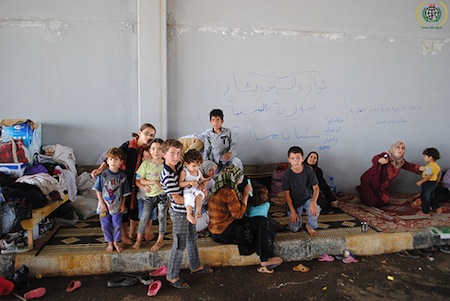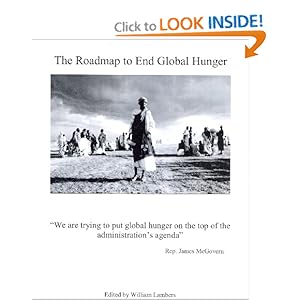Bundling Up to Save Syrian War Victims

Syrian refugees in southern Turkey, August 2012. Credit: Flickr/IHH Humanitarian Relief Foundation/TURKEY.
 What cannot be forgotten amid the conflict in Syria is the humanitarian crisis which grows daily. Hundreds of thousands of Syrians have been forced from their homes by the fighting between rebels and the government forces supporting President Assad.
What cannot be forgotten amid the conflict in Syria is the humanitarian crisis which grows daily. Hundreds of thousands of Syrians have been forced from their homes by the fighting between rebels and the government forces supporting President Assad.
Food aid is needed to save lives and prevent malnutrition and disease from growing. For hunger can easily become the greatest threat facing the Syrian people. Vivian Manneh of the charity Catholic Relief Services says Syrian refugees are exhausted.
But this crisis gets even scarier when you think of what is coming: winter. Yes, even in the Middle East, colder temperatures will come putting refugees at even more risk if they do not have supplies.
"Today the sun is shining, but very soon the harsh winter weather is going to set in," says Sybella Wilkes of the United Nations High Commissioner for Refugees (UNHCR). She adds, "The winters are really harsh. We are very concerned about the refugees living in tents, as well as the hundreds of thousands of displaced inside Syria who may face problems having access to heating fuel, blankets etc.” UNHCR and other aid groups will need enough funds to care for displaced Syrians.
What can we do to help? Exactly what the World War I generation did: Have a Bundle Day to collect clothing for the needy. The First World War caused immense suffering in many countries and its aftermath had even more conflict, hunger and displacement. The Near East Relief Committee worked in Armenia, Syria, present day Iran, Georgia and elsewhere to help the hungry, cold and sick war victims. A poster for the committee read "Hunger knows no armistice."
In 1922 there became a great need for clothing, particularly for refugees from Armenia which had suffered through years of conflict. The Bundle Days were set up in the United States to collect clothing for the Near East Relief Committee. Fire and police stations served as drop off points for the clothing.
Today, a Bundle Day for Syrian refugees can be held in the form of clothing collections or monetary donations to charities. UNHCR, the World Food Programme, Catholic Relief Services, Save the Children, UNICEF are some of the agencies working to help Syrian war victims.
When a family is displaced they not only lose shelter but their livelihoods, and access to basic foods and other supplies. This is what is happening to hundreds of thousands of people displaced inside Syria and to those who have fled to neighboring countries. There are about 1,400 Syrians arriving every day in Jordan. Others are fleeing to Turkey, Iraq and Lebanon.
And what of food supplies? The UN World Food Programme, with its partner the Syrian Red Crescent, is leading the way to make sure malnutrition does not gain strength as it well can during times of war. The U.S. and other nations have made generous donations but so much more is needed.
Back after the First World War Herbert Hoover and General John J. Pershing recognized the great needs that still existed even after the guns fell silent. There is no overnight recovery from such brutal violence. The two leaders co-hosted an Invisible Guest fundraising dinner, one of numerous similar events across the country.
A chair was placed at the table representing one of the world's hungry children. The funds supported food aid distributed by the American Relief Administration and other agencies in war affected countries.
Today, as we see great turbulence in the Middle East and other regions we cannot forget the impoverished. Whether its war victims in Syria or the severely malnourished and stunted children in Afghanistan and Yemen, they all need help. With enough resolve the suffering of millions of people could be greatly alleviated this coming winter.
We cannot approach the problem of peace in the world without talking about the basics of food, clothing, medicine, shelter and education. For these are the foundations needed for any recovery and stability Syria and other countries desperately need.
